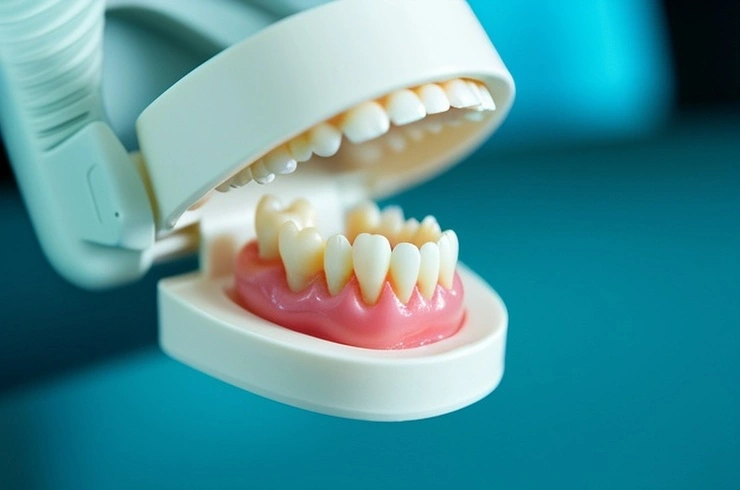
The arrival of wisdom teeth, also known as third molars, typically occurs between the ages of 17 and 21. While some discomfort is normal during this eruption process, the pain can sometimes indicate more serious dental issues. It's crucial to consult your dental professional when these molars start to emerge to ensure optimal care and prevent complications.
Common problems associated with wisdom teeth include:
Impaction: This occurs when the wisdom tooth doesn't fully erupt or grows at an incorrect angle, even sideways, leading to radiating pain.
Cysts: These fluid-filled sacs can develop around an impacted tooth, potentially damaging roots and destroying bone.
Tooth decay (cavities): Food can easily become trapped around partially erupted wisdom teeth, making them prone to cavities.
Gum disease: The difficulty in cleaning around wisdom teeth can lead to gum inflammation and disease.
Infections: Bacteria can easily enter the gums around erupting wisdom teeth, causing infections.
Crowding: Emerging wisdom teeth can put pressure on existing teeth, leading to misalignment.
For many individuals, wisdom teeth removal is the recommended course of action, especially if problems are likely to arise later. Your dental provider can assess your specific situation and determine if extraction is the best option.
In the meantime, if you're experiencing wisdom tooth pain, there are several effective ways to find relief at home:
Wisdom Teeth Pain Relief
Saltwater Rinse
A simple saltwater rinse can help alleviate pain and reduce inflammation.
Mix one teaspoon of salt into a cup of warm water.
Stir until the salt is fully dissolved.
Swish the solution in your mouth for 30 to 60 seconds, then spit it out.
Repeat as needed throughout the day.
Benzocaine
Topical anesthetics like benzocaine can provide temporary numbing relief, especially when the pain is disruptive.
Apply a gel-based topical anesthetic directly to the gums where the wisdom tooth is emerging.
For best results, gently dry the area with a cloth or gauze before application.
Reapply as necessary throughout the day, following product instructions.
Ibuprofen
Over-the-counter pain relievers can effectively reduce throbbing pain. Ibuprofen, being an anti-inflammatory, is particularly effective for wisdom tooth pain. Always read and follow the dosage instructions on the packaging carefully.
While these home remedies can offer temporary relief, remember that they are not a substitute for professional dental care. It's essential to schedule an appointment with your dentist to determine the underlying cause of your pain and to discuss whether your wisdom teeth should be removed to prevent future oral health issues. Your dental provider can offer personalized advice and ensure your long-term oral health.
Pro Tip
The content of the article is shared by netizens, please carefully identify it